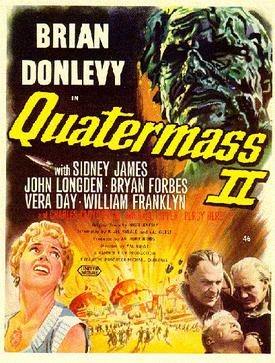
Quatermass 2 is a 1957 black-and-white British science fiction horror film drama from Hammer Film Productions. It was originally released in the UK as Quatermass II and was produced by Anthony Hinds, directed by Val Guest, and stars Brian Donlevy with co-stars John Longden, Sidney James, Bryan Forbes, Vera Day, and William Franklyn. Quatermass 2 is a sequel to Hammer's earlier film The Quatermass Xperiment (1955). Like its predecessor, it is based on the BBC Television serial Quatermass II written by Nigel Kneale. Brian Donlevy reprises his role as the eponymous Professor Bernard Quatermass, making him the only actor to play the character twice in a film. It is often erroneously considered as the first film sequel to use the '2' / 'II' suffix within the title, though this distinction belongs to Sanshiro Sugata Part II.
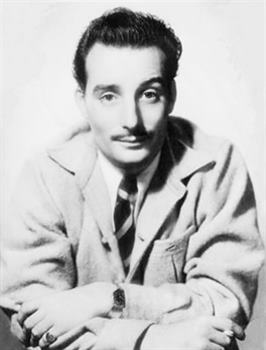
Val Guest was an English film director and screenwriter. Beginning as a writer of comedy films, he is best known for his work for Hammer, for whom he directed 14 films, and for his science fiction films. He enjoyed a long career in the film industry from the early 1930s until the early 1980s.

Louise Beavers was an American film and television actress who appeared in dozens of films and two hit television shows from the 1920s to 1960. She played a prominent role in advancing the lives of Black Americans through her work and collaborated with fellow advocates to improve the social standing and media image of the Black population.
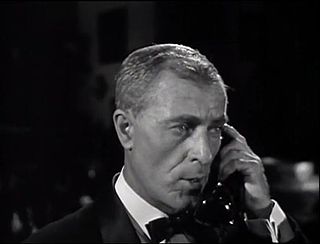
John Hoyt was an American actor. He began his acting career on Broadway, later appearing in numerous films and television series.

The Runaway Bus is a 1954 British comedy film produced, written and directed by Val Guest. It stars Frankie Howerd, Margaret Rutherford and Petula Clark and an ensemble cast of character actors in a story about a bus caught in fog while a gang of crooks tries to carry off a heist. The film was shot at Southall Studios in London with sets designed by the art director Wilfred Arnold. It was the film debut of Belinda Lee. The film is referenced in an episode of Frankie Howerd's 1970s radio series.

Miss Pilgrim's Progress is a 1949 black-and-white British comedy film by producer Nat Cohen and director Val Guest.
The Just William series is a sequence of thirty-eight books written by English author Richmal Crompton. The books chronicle the adventures of the unruly schoolboy William Brown.

The Man from Blankley's is a lost 1930 American pre-Code comedy film, directed by Alfred E. Green. It starred John Barrymore and Loretta Young. The film was based on the 1903 play by Thomas Anstey Guthrie, writing under the pseudonym "F. Anstey". The film was Barrymore's second feature length all-talking film. A previous silent film version of Anstey's play by Paramount Pictures appeared in 1920 as The Fourteenth Man starring Robert Warwick. That version is also lost.

Just William's Luck is a 1947 British comedy film directed by Val Guest and starring William Graham, Garry Marsh and Jane Welsh. The film was based on the Just William series of books by Richmal Crompton. Crompton was impressed with the film and wrote a novel Just William's Luck based on the events of the film. The following year a second film William Comes to Town was made.

Just William's Luck (1948) was a novel in the Just William series by Richmal Crompton. The story revolves around the attempts of William Brown and the other Outlaws to get their older brothers married, in order to appropriate wedding presents that they plan to exchange for things of their own desire. After a series of unlikely adventures, the boys serendipitously foil a gang of fur coat smugglers, and receive a reward from the police.

Nana Irene Bryant was an American film, stage, and television actress. She appeared in more than 100 films between 1935 and 1955.
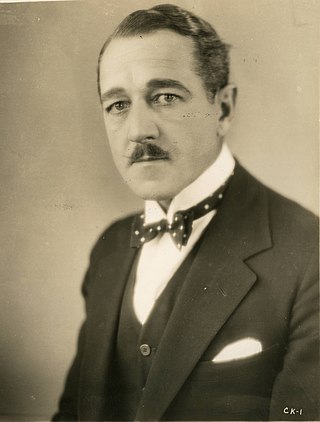
Crauford Kent was an English character actor based in the United States. He has also been credited as Craufurd Kent and Crawford Kent.
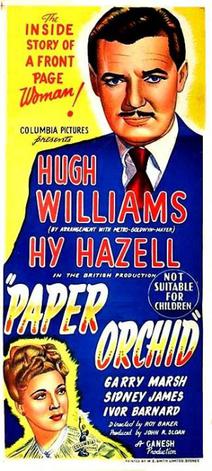
Paper Orchid is a 1949 British crime film directed by Roy Ward Baker, with a script written by Val Guest. It featured Hugh Williams, Hy Hazell and Garry Marsh, and was based on the 1948 novel of the same title by Arthur La Bern. It featured an early film appearance by Sid James, who later found success through the Carry On series.

Murder at the Windmill, titled Mystery at the Burlesque in the United States, is a 1949 British crime film directed by Val Guest and featuring Garry Marsh, Jon Pertwee, Jack Livesey, Eliot Makeham and Jimmy Edwards.
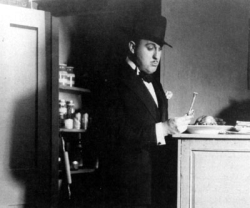
Garry Marsh was an English stage and film actor.
Badger's Green is a 1949 British comedy film directed by John Irwin and starring Barbara Murray, Brian Nissen, Garry Marsh and Kynaston Reeves.

I'll Be Your Sweetheart is a 1945 British historical musical film directed by Val Guest and starring Margaret Lockwood, Vic Oliver and Michael Rennie. It was the first and only musical film produced by Gainsborough Studios. Commissioned by the British Ministry of Information, it was set at the beginning of the 20th century, and was about the composers of popular music hall songs fighting for a new copyright law that will protect them from having their songs stolen. Copyright scholar Adrian Johns has called the film "propaganda" and "a one-dimensional account of the piracy crisis [about sheet music in the early 20th century] from the publishers' perspective", but also highlighted its value as historical document, with large parts of the dialogue "closely culled from the actual raids, court cases, and arguments of 1900-1905."

Michael Creighton Balfour was an English actor, working mainly in British films and TV, following his TV debut in the BBC's The Marvellous History of St Bernard, in 1938. He was a recognisable face, often in small character parts and supporting roles, in nearly two hundred films and TV shows, from the 1940s to the 1990s, often playing comical heavies or otherwise shady characters notable for their "loud" clothes, sometimes convincingly cast as an American.

The Maid of the Mountains is a 1932 film based on the long-running stage musical The Maid of the Mountains. It was directed by Lupino Lane.
John Warren (1916–1977) was the stage and pen name of a British screenwriter and support actor. Specialising in comedy writing, he worked with several figures at the forefront of British comedy, such as Tommy Cooper, Peter Sellers, Dick Emery and Mike and Bernie Winters.
















